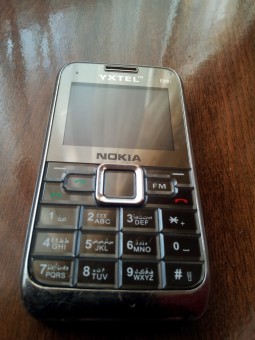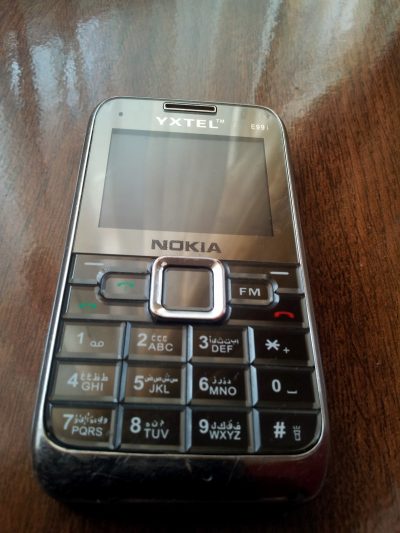
Kenyan mobile operators will start switching off “fake” cell phones from their networks in accordance with a government directive. They are scheduled to begin the exercise at midnight, 30 September.
The switch-off process will involve blocking a handset that bears a fake International Mobile Equipment Identity (IMEI) number from accessing a mobile operator’s network. The IMEI is the phone’s individual identification number.
Using the GSMA IMEI Database, and in collaboration with the country’ operators the Communications Commission of Kenya (CCK) constructed a database that contains the IMEI numbers of all legitimate mobile phones in the country. If the user’s phone’s IMEI is not in the database, it will be deactivated. The process blocks the affected phone from the network, but the SIM card will not be affected.
All the operators have agreed to ensure that a phone blocked on one network, cannot be used on another network. According to the CCK, close to 3 million mobile phones in the Kenyan market are counterfeit, translating to about 10% of all the active mobile devices in the country.
Uganda has also taken a leaf out of Kenya’s book and announced that they will also follow suit with plans to switch off counterfeit cellphones in November.
We wonder if this can be implemented in Zimbabwe, and what the reaction would be from the public. Share your thoughts in the comments.

12 comments
The sooner they do it in Zimbabwe the better. We need to promote sustainable ecosystems. I am speaking solely from the perspective of a developer. The more segmented the landscape is, especially with non-uniform, not so well documented OSs, the more difficult it becomes to develop apps with wider reach. Of course SMS based apps are in vogue, but going on we all want to move towards smarter apps and that can only be assisted by concentrating development efforts on supportable ecosystems. Android, Windows and iOS and perhaps the basic Java for now, then standards compliant handsets.
It will be tough for the consumer at first, but the future benefits outweigh the immediate setback.
Misplaced argument. This has nothing to do with development or segmentation.
In other news, I would never support such a move unless the said-Government has an environment that allows for the affordable, subsidised and easy replacement of those phones. If counterfeit phones are slipping through their borders, would one blame the consumer, who may not be aware of counterfeit phones.
IMHO, unless they assist those who will be affected, it’s 50 steps back. Not knowing how the Kenyan environment is, from a Zimbabwean perspective, I would see hundreds of thousands(if not millions) of very low-to-medium income urban earners and a large chunk of the rural population being affected.
It would be literally disconnecting people and taking them way back. I would never support this in Zim
The conspiracy-theorist side of me thinks its an attempt to have more accurate & specific data on mobile phone usage. Counterfeit phones and fake IMEI numbers would always throw spanners into any attempt to gather true mobile phone statistics and data.
Don’t worry Guest just develop the apps, he who wants the app will find a compatible phone. Zim will be ready for that in less than a year because the people themselves are tired of these fake phone and they are busy getting rid of them
unlike in kenya, i think zim has far much more than the 10% using funny phones in Kenya. so yeah, for zim it would be a major blow…not now please
We won`t let it happen in Zim, ko vanambuya varikumusha vanozoita sei? Kumamisha uko maZhing-zhong chete chete accessing Eco-cash. Never!!!!!!!!!!!!!!!!!!!!!!!!!!!!!!!!!!!!!!!!!
kikikikikiki mine is also a zhhhhhhhhh
Considering the case of toys made in china that were banned in the US for being made of carcinogenic plastic materials, i have always wondered just how safe these China-made counterfeit phones, or even tiny brands like Gtide are. At one time i thought of taking one such phone for testing but when it turned out it would cost me i just said to myself why bother.
Anyway, if Kenya should have Kenyans who manufacture cellphones or who want to venture into that, it would be good for the local Kenyan industry.
Apart from using stolen designs, I understand most of these phones don’t meet radiation emission standards. In the long run this might actually save some lives.
Some of the reasons they give make sense, but i think the main reason is so they can track criminals/everyone using the IMEI. The full list of reasons (not too many) is here: http://www.cck.go.ke/counterfeit-campaign/
It would be nice if they did that in Zim but then the issue is then they would have to provide other low cost alternatives to allow users to be able to still access a mobile phone. the boom that we saw in Zim came about as a result of cheaper lines and widely available, low-cost, zhanga phones. So unless they start working with the operators in providing cheaper access to phones (maybe offering them on hire-purchase/credit/whatever its called) let them stay.
However, I do feel th country should have stronger legislation on testing these chinese products because we can’t all be certain what the chinese export to us is safe for ourselves. Tinozoguma tese tachembera tine cancer nebrain damage nekuda zvinhu zvakabva kuChina.
Are all chinese phones counterfeits? What about those with chinese brands, dual sims, are they copying dual sim from nokia, iphone etc, wat about Hauwei?
No I am in Kenya and my Huawei phone and tablet are all working well they are properly registered in their database.